6 Tips for New Vegans
/Sometimes going vegan can be overwhelming. Here are 6 tips for new vegans to get you started on your vegan journey.
Read MoreSometimes going vegan can be overwhelming. Here are 6 tips for new vegans to get you started on your vegan journey.
Read MoreWhy is fiber vital to our health and where do we get it?
Read MoreThese days there are so many different terms out there: vegan, vegetarian, pescatarian, fruitarian, plant predominant, plant based, whole food plant based. The list seems endless and can be so confusing for those who are just starting on this journey.
Let’s take two of these terms and define them.

By definition someone who is vegan “abstains from the use of animal products, particularly in diet, and an associated philosophy that rejects the commodity status of animals” (Wikipedia). In other words, someone who is vegan doesn’t eat animals (or byproducts) or use them in other areas of their life (cosmetics, furniture, clothing, etc.).
Does vegan mean healthy? No, not necessarily.
Most people who go vegan do it for the animals, and not necessarily for their health. In today’s world, there is a plethora of vegan options and you can live off of vegan burgers, ice cream and pizza. While these options are so much better than eating animals, they aren’t the healthiest options on a day to day basis.
On the other hand, most people go plant based for their health but they may not care about animals. Someone following a plant based diet eats a diet rich in whole grains, legumes, fruits, veggies, nuts and seeds. They may still include a small amount of animals in their diet and use animals in clothing, furniture, cosmetics, etc.

So what do you think? Would you consider yourself vegan or plant based? I like to call myself a plant based vegan. I deeply care about the animals but also want to be as healthy as possible <3
I love, love, love when someone goes vegan! Although, being vegan is truly about the animals, it doesn’t matter to me how someone gets there, as long as they get there. It can be for the animals, for a health reason or for the planet. However, I find that when someone goes vegan because it’s a FAD or the cool thing to do, they don’t often stick with it. This is why I think it is crucial to have a strong “why.”

It is important to have a strong “why” or motivation for going vegan. Once you have that reason, post it everywhere: on your phone, in a journal, on your computer, on your bathroom mirror, on your fridge. And be really specific and clear on what that reason is (is it the beautiful, black and white cow who was saved from the dairy industry or is it because your blood pressure is through the roof?). Having this reason will help you continue your vegan journey when things get tough or when you want to reach for something that isn’t vegan.
I find that the people who have a clear why stick with being vegan for a lifetime instead of it just being a short term “diet.”

Do you need help finding your “why”? I highly recommend visiting a local, animal sanctuary or watching one of the following documentaries:
Earthlings (ethics)
Dominion (ethics)
Cowspiracy (environment)
What the Health (health)
Forks Over Knives (health)
Game Changers (all)
Seaspiracy (environment)
I would love to hear what your “why” is. Please share in the comments below. <3
Have you ever had issues with gas and bloating when going vegan? Here are 5 tips to help.
Read MoreWhen I tell someone that I am vegan, the first question is, “Where do you get your protein?” This is often followed by, “What do you eat?” And next is, “How do you get enough iron?”
Contrary to popular belief, getting enough iron on a vegan diet can be quite simple (and plant iron is less inflammatory than heme iron that comes from eating animals!).


Be sure to eat a diet rich in whole grains, legumes, nuts, seeds and veggies.
Combine the foods from tip 1 with foods high in vitamin C. For example, squeeze some lemon juice on your broccoli or orange juice on your spinach.
Limit your caffeine intake: only drink it an hour before meals or two hours after.
I hope that these tips are helpful! Which tip will you apply first?
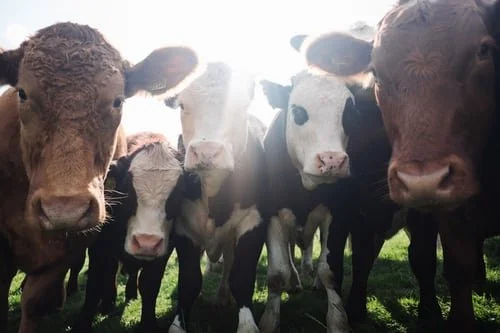
Last week, one of my favorite influencers in the wellness space announced that she was “no longer vegan.” And it made me so sad. Of course it made me the most sad for the animals, but it also broke my heart for this individual who was suffering from health issues. In addition, there were 100’s of people who commented on her post who had also stopped being vegan. So, this got me thinking. Why do people stop being vegan?
I think that there are many reasons why people start eating animals again, but here are just a few of the reasons that I have come up with:

Not having a strong enough “why”. I think that sometimes people go vegan because they are following a trend or because it’s the cool thing to do. When you have a stronger motivation, you are more apt to stick with it longer. If you need a powerful reason, please watch Dominion, What the Health, Earthlings, Cowspiracy, visit an animal sanctuary or even a slaughterhouse.. Once you make the connection with the animals, there will be no going back.
Pre-existing gut issues! I have heard many people who stop being vegan because they had gut issues, were bloated all the time or started losing their hair. What we don’t often realize is that if we have a pre-existing gut issue, you are simply adding fuel to the fire when you go vegan. Animal products don’t contain any fiber but plants are loaded with it. If you start piling that on to an unhealthy gut, no wonder you feel bloated and uncomfortable. Side note: gut issues can stem from all kinds of fun things like parasites, glyphosate, a malabsorption issue (hence, the hair loss), stress, toxins and more. And parasites can come from animal products and linger in your body for 10 years.
Not supplementing! Being vegan is amazing and there are so many nutrients that we can get from our food. But there are a few that we can’t. For example, B12 comes from a bacteria that is found in the soil. Because our soil is depleted and we wash everything so well, we don’t get B12 without a supplement. I also recommend D3 and possibly a vegan EPA/DHA.
Not doing enough research or giving it enough time. Just like with any big change, being a successful vegan takes time. It’s important to do your research and to understand where you get your protein, iron, etc. (you can also let me do the work for you with my Vegan 101 Guide) It’s also crucial that you test out recipes and discover new flavor combinations. It truly does get easier and easier over time so don’t give up!
I would love to hear your opinion. Why do you think that people stop being vegan? Is there something that you are struggling with that has tempted you to eat animals again?
Also, be sure to check out my Instagram Live about this very topic.
Here are some quick tips for dealing with non-vegan family and friends. I hope that they help!
Read MoreHave you ever thought about going vegan but have no idea where to start? Try one of these approachable steps to get you started.
Read MoreHave you had a chance to watch the popular Netflix documentary, Seaspiracy? Check out my biggest takeaways after watching the film last Friday night. You do not want to miss this eye opening film!
Read MoreDid you know that foods like bread, chocolate or peanuts may have animal sourced ingredients?! Here is a quick list of Non Vegan Ingredients to Avoid as well as foods that may contain animal products. Hope that it helps!
Read MoreSome people are able to go vegan overnight but for many others it can be a slower transition. Read about my vegan journey and why I failed the first time that I went vegan. Maybe my story and these 4 steps will help you make a smooth transition.
Read MoreWhen you first go vegan, it can be incredibly overwhelming. There are so many different aspects to consider. I personally think that starting with changing your food should be the top priority. But once you have conquered that, it may be time to start considering where else animals are used in our everyday products. For today, let's just start with two products that you may not realize aren’t vegan.

The first are razors! Yup, that little thing that you use everyday to shave may actually contain substances from an animal. What?!
I know, it sounds crazy. In addition to being tested on animals, many razors have a moisturizing strip that is made from things like lanolin (from sheep) or glycerin (derived from animals).
There are many vegan razors on the market, but my favorite are Preserve razors. They are vegan, cruelty free and are made from recycled materials.
*I am not affiliated in any way with this company.

The second item that you may not realize isn’t vegan is alcohol (okay, I guess technically this is a food but we will just call it a product for today’s sake).

While I am not a drinker, I was blown away that beer and wine could contain animal products (how is that possible?!).

Honey and dairy are often added to the final product but animals are also used in the filtration system. During filtration, things like isinglass (from fish bladder), gelatin, sea shells and egg whites are used.
“There have also been cases of whole chickens being included in beer. It’s based on ‘cock ale, a 17th century recipe that breweries occasionally recreate in small batches” (barnivore.com).
To ensure that your alcohol is vegan, look for a vegan label. I also recommend visiting the Barnivore liquor guide online.
I hope that this helps make your transition a bit easier and less overwhelming. It is important to take it one step at a time. We will address cosmetics and clothing at a later date.
For now, check out some vegan razors and have a vegan drink (responsibly and only if you are over 21, of course!).
And don’t forget that you can always contact me if you need more support with your vegan journey!
<3, April (Happy Healin’ Vegan)
I originally made the full transition to a vegan diet in 2016 after my dog died. When I was watching him suffer, I realized that I never wanted to contribute to an animal's suffering for as long as I lived. I also made the connection that "meat" came from an animal, an animal who was tortured and killed for my five minutes of pleasure.

Although the animals were absolutely enough to keep me vegan for the entirety of my lifetime, I truly love the health benefits of being vegan as well. I had hoped that I would feel better but some of these benefits were truly unexpected. My body has completely transformed inside and out. I will take you through just some of the major health benefits that I have experienced over the last two years.
Lyme Disease Remission: for those of you who haven't been following my blog for long, you may not know that I was diagnosed with Lyme Disease in 2015 (for more information on this please click here). I had awful symptoms including severe leg pain, digestive distress, anxiety, brain fog, insomnia, memory loss and fatigue. I spent $1000's on treatment and at one point was taking over 90 supplements per day. Within a few months of switching to a vegan diet, almost all of my symptoms disappeared.
Less constipation and bloating: okay this may seem like TMI, but going to the bathroom is a really important part of our health. On a diet that consists mostly of animal products, we are not getting the fiber that we need (meat, dairy and eggs contain 0g of fiber!!!!). This can lead to constipation and bloating. (Side note: did you know that a healthy person should go to the bathroom 3 times per day?!). Going vegan definitely helped me with this issue.
No more thyroid pills: just like many people around the world, I was put on thyroid medication at a very young age. I had been taking thyroid medication for 15 years prior to going vegan. After a year of being (mostly) a whole food plant based vegan, my thyroid had healed itself and my doctor took me off of my medication. No more of those nagging pills!
Clear skin and strong nails: this one may not seem very important but I am sure that most of us know what it feels like to wake up with a giant pimple on the center of your face! It can truly halt your confidence and put a damper on your day. Whenever I would consume dairy, I would almost immediately develop cystic like acne on my face and body. My skin has cleared up dramatically since being vegan. In addition, my nails are stronger than ever!!!
Less pain during that time of the month: I can vividly remember the days of curling up in a ball on the floor because my menstrual cramps were trying to kill me! This would happen every single month and I truly dreaded my period. Nothing seemed to help including Midol or chocolate. Although I still get a tiny little cramping, it is nothing like it used to be.
Transitioning to a vegan diet has truly been one of the best decisions I have ever made. I love the feeling of saving animals, but it has improved my health dramatically, and in only two years. I cannot wait to see what the future holds and to see how my health will improve from here. I bet that it will just keep getting better and better <3
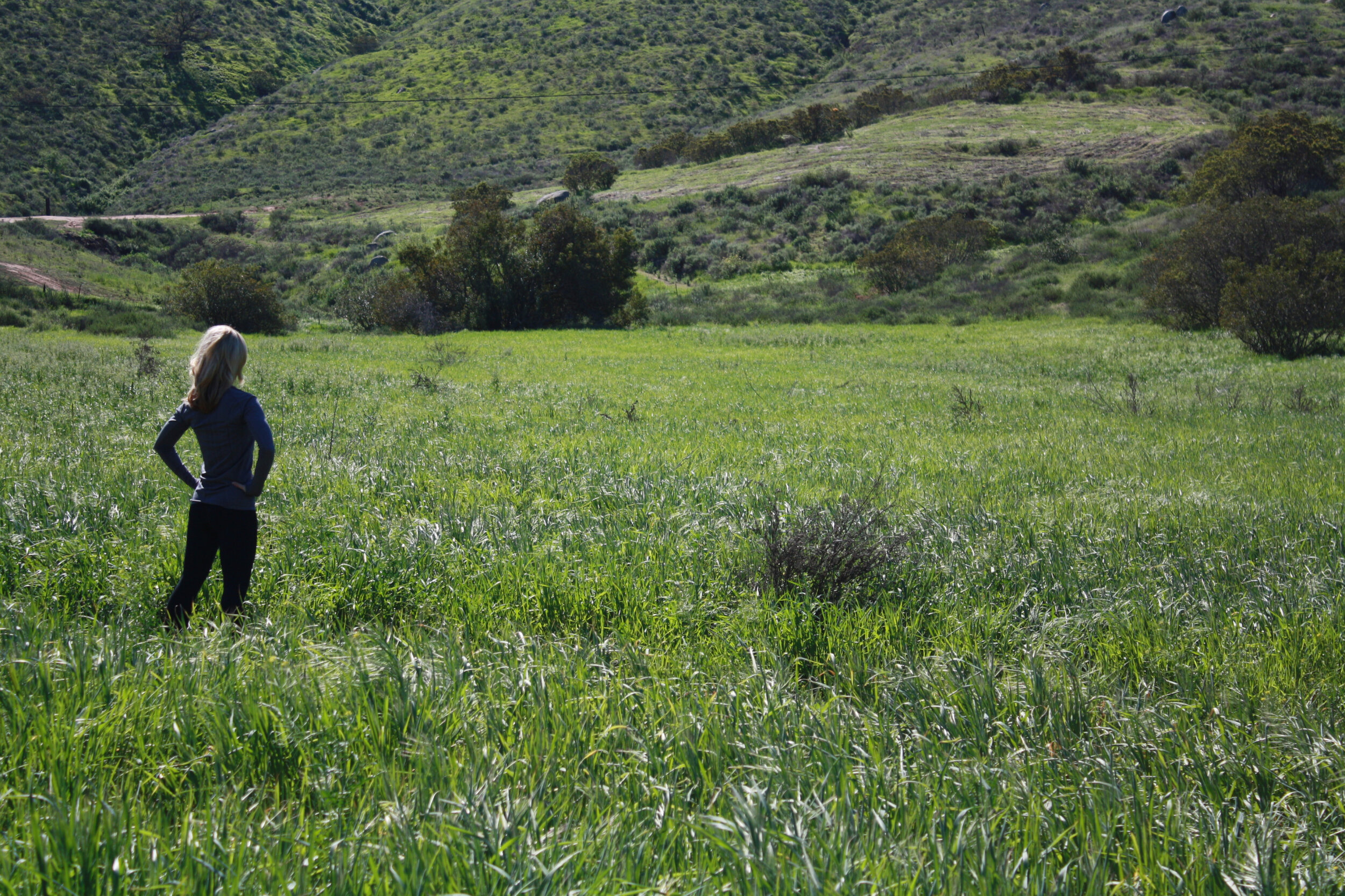
I would love to hear from you; what health improvements have you seen from switching to a vegan diet?

I always knew that I loved animals and never, ever wanted to eat them. However, being a personal trainer, I often worried about not getting enough protein as a vegan. I would go a few months without eating meat and then someone would ask me, "But where do you get your protein?!" I would let my mind convince me that I was dying from a protein deficiency and would start eating chicken again.

Because eating meat did not align with my morals, I finally took time to do some research and I found that it IS absolutely possible to get protein without eating meat! And three years later, I am still feeling great and will never go back to eating animal protein again.

Here is the good news! Every food that we eat (minus oils) contains protein, so if you are eating enough calories you will absolutely get enough protein. And protein from plants doesn't contain all of that yucky stuff that meat does: no saturated fat, no cholesterol, no hormones that increase IGF-1. Plus, plant protein contains fiber (something that meat doesn't contain at all) and isn't inflammatory! In addition, plant protein doesn't increase your chances of getting heart disease, type 2 diabetes, cancer, or kidney issues like meat does. It's an all around WIN!!!!!

***This guy doesn't have to worry about protein...and all he eats is PLANTS!!!!!
So, how much protein does a person need? The recommendation for adults is 0.4 grams of protein per pound of healthy body weight. It is absolutely easy to satisfy this need with a plant based diet. Simply make sure to eat enough calories and to load up on whole plant based foods. In addition, here are some foods that contain more protein than their plant based friends:
*Black beans: 7.6 grams of protein (per 1/2 cup cooked)
*Garbanzo beans: 7.5 grams of protein (per 1/2 cup cooked)
*Kidney beans: 8.1 grams of protein (per 1/2 cup cooked)
*Lentils: 8.9 grams of protein (per 1/2 cup cooked)
*Seitan: 22.5 grams of protein (3 ounces)
*Tofu: 10-20 grams of protein (firm usually contains more protein but varies from brand to brand)
*Peanuts: 8.6 grams of protein (1/4 cup)
*Almonds: 7.3 grams of protein (1/4 cup)
*Quinoa: 4.0 grams of protein (1/2 cup cooked)
*Potato: 4.5 grams of protein (1 baked)
*Peas: 4.5 grams of protein (1/2 cup)

Above are some of my favorite plant-based sources of protein.
Other sources include edamame, nuts and seeds, nut milks, plant based protein powders, whole grains and vegetables.
I hope that helps a bit and shows you that it IS absolutely possible and beneficial to get protein without eating meat.
For even more information, I recommend reading Proteinaholic by Garth Davis, M.D. It is also available on audio book and is absolutely GAME CHANGING!

Have a great day and I would love to hear from you!!!
What is your favorite plant based source for protein??? Leave a comment below.

Hello everyone,
I hope that you had a wonderful holiday season and are enjoying 2020!
It has been awhile since I have written a blog and have some big things coming up in the following year. For today, I wanted to kick off my blogging year with some information about daily use items (and some food) that may not be vegan.
Sometimes I think the most difficult part of going vegan isn’t the food but is switching out all of the items in your home that contain animal products.
Below are just a few of our every day items that may contain animal products.

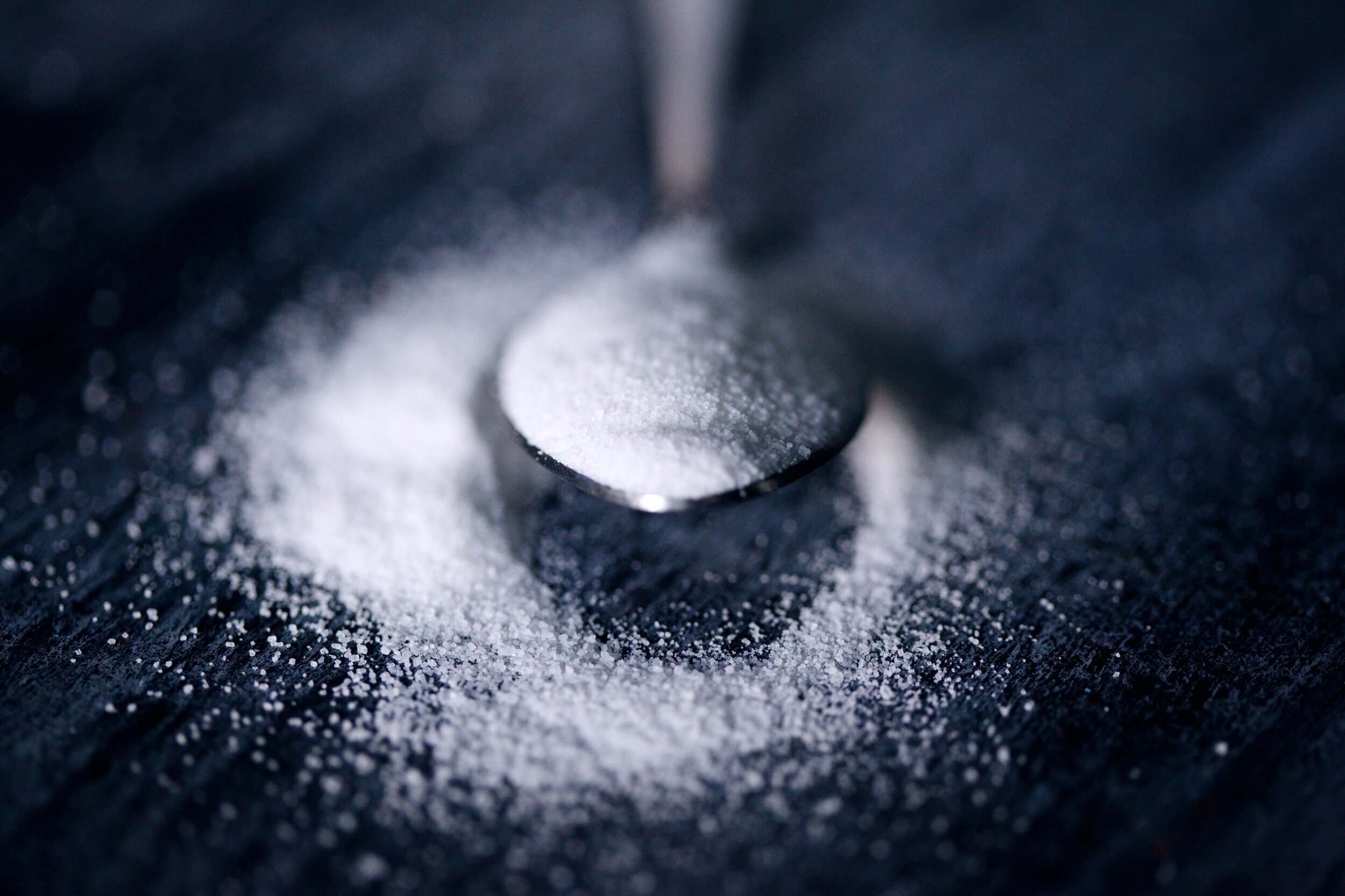
The refining process for white sugar often comes from bone char.
Razors: most razors have a lubricating strip above the blade that contains lanolin or glycerin (lanolin is a wool byproduct that comes from sheep while glycerin can also be derived from animals. I prefer to use Preserve Razors. They are vegan and are made from recycled yogurt cups.
Lipstick: red lipstick often contains cochineal, which is made from crushed beetles. Tallow, which is made from rendering animal fat, is also found in many cosmetics. The animals used to make tallow come from sources such as labs, slaughterhouses, zoos and even roadkill! I try to find vegan lipsticks from Beauty Counter, Arbonne, or Elf Cosmetics.
White sugar: the refining process for white sugar often comes from bone char, a granular material from animal ashes.
Beer: beer and wine both can contain Isinglass, a chemical found in fish bladders. It is best to buy products that say “vegan” on the label.
Supplements/medication/vitamins: be careful to read the ingredients on these items. They often contain dairy and gelatin.
Nail polish: nail polish often contains guanine, which is made from ground-up fish scales. It is also found in cleaning products, fragrances, hair conditioners and skin care products.
PLEASE LEAVE A COMMENT IF YOU HAVE ANY RECOMMENDATIONS FOR ANY OF THE ABOVE ITEMS.
Also, please make sure to contact me if you need any help with the transition process <3

Hello everyone,
I hope that you are having an incredible weekend! It is cold and rainy here in San Diego, which means it's the perfect time for a warm meal....maybe Mac and cheese?!

Here is a recipe for our favorite, dairy-free (and warm) "cheese" sauce. This recipe was originally found on a blog called Vegan Yumminess and we have modified it slightly. I hope that you enjoy it.
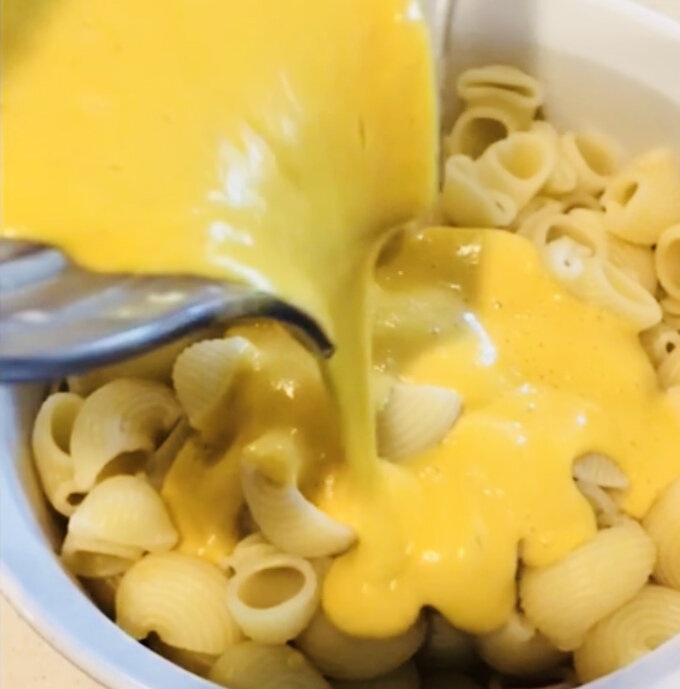
Dairy-Free Cheese Sauce
Ingredients:
1 cup chopped yellow potatoes
1/4 cup chopped carrots
1/3 cup chopped yellow onion
3/4 cup water (use the warm water from the pot of boiled veggies)
1/2 cup raw cashews
1/4 cup coconut milk
2 tablespoons nutritional yeast
1 tablespoon lemon juice
1 teaspoon salt (or to taste)
1 garlic clove
1/8 teaspoon paprika
1/8 teaspoon cayenne pepper
a few drops of Sriracha (optional, this will kick up the spice!)
Directions:
Wash and chop veggies.
Bring a medium to large pot of water to a boil. Add the chopped potatoes, carrots and onions. Cook for about 10 minutes or until vegetables are soft enough to blend.
In the meantime, put the remaining ingredients into a blender or Vitamix.
When the veggies are done, drain the water (leaving 3/4 cup water to add to the blender).
Add the soft veggies and water to the blender or Vitamix.
Blend all of the ingredients until smooth.
Pour the warm sauce over pasta for Mac and cheese or use it as a sauce for baked potatoes. The sauce is also great for dipping veggies or on a sandwich.
Enjoy...and make sure to tag me on Instagram (@happyhealinvegan) if you make this recipe :). I would love to see your creations.

I think that one of the hardest parts about transitioning to a vegan diet is that dairy is found in so many foods. In addition, dairy isn't always labeled as that. It can be referred to by many other names.

Let's start with the basics. Dairy from cows or goats (yes, goats!) is used to make cheese, ice cream, whey, yogurt, Greek yogurt, milk, ghee, cream cheese, cottage cheese, butter, milk chocolate, kefir, and creamer. It can also be found in processed foods such as crackers, candies, vitamins and medication.
One of the best ways to check to see if a food is dairy free is to read the ingredient list. Stay away from the list above as well as the following: casein, lactose, galactose, rennet, quark, lactate, cream, nisin preparation, recaldent, natural flavors.

The best way to avoid dairy all together is to stick to a whole food plant based diet and to avoid packaged foods. You can also look for the "Vegan" label when buying packaged items.
I hope that helps a little bit. If you need even more help transitioning to a dairy free life, please read the following blog posts: Our Favorite Dairy Free “Cheese” Sauce and It’s easy to give up dairy with these awesome alternatives! Also, feel free to contact me anytime!

Who knew that as a vegan I would eat more sausage than I did as a meat eater??? Over the last few months, we have found a delicious, vegan sausage product and have now perfected the recipe. This recipe is great by itself, with some bread, pasta or even with tacos.

Here is a quick video demonstration. Give it a try! Your vegan and even meat eating friends will thank you.

I guide women to vibrant health with plant-based nutrition, movement and low-toxin living.
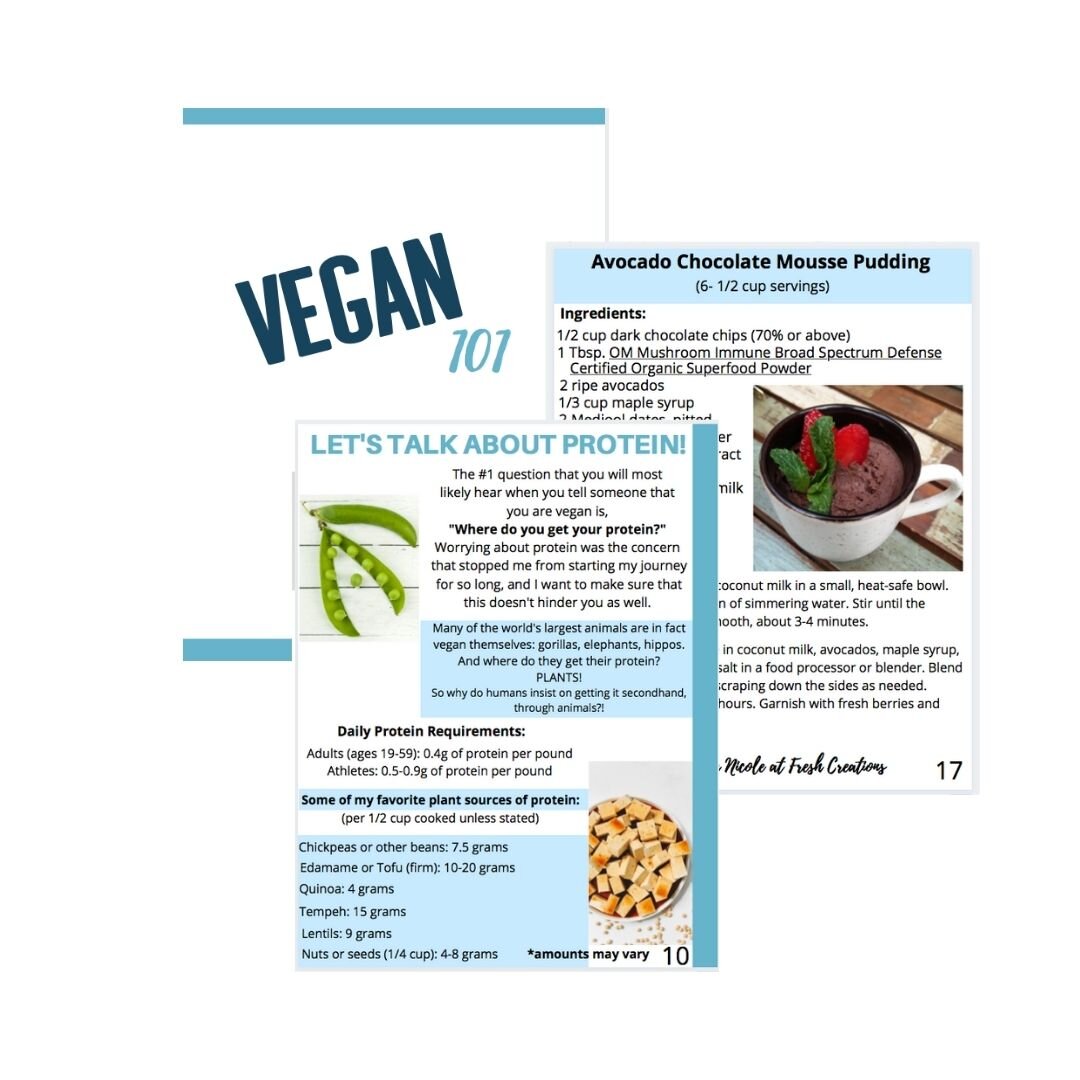
Instagram @happyhealinvegan
Join my Facebook Community: Plant Strong Sisterhood
Copyright © 2020 Happy Healin’ Vegan